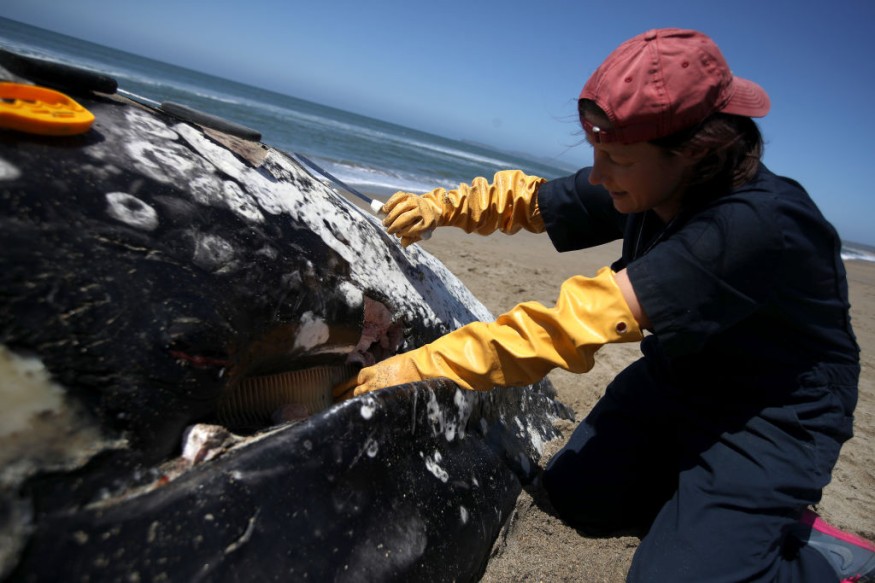
Earlier this week, news broke out about another gray whale that had beached and died somewhere in the San Francisco Bay area. This makes it the twelfth incident involving dead whales on San Francisco's beaches.
Dead whales darken migration season
Unfortunately, this latest incident has still not brought local researchers anywhere closer to knowing why. The whale was already in advanced stages of decay when it washed up ashore, and would render any necropsy futile.
On the other hand, the increased likelihood of whale sightings in the area has at least been within their expectations. Heavy migrations have been expected this time of year, and it is why many marine biologists have been watching the area closely for unusual deaths such as this.
Four of this year's beached whales were all suspected to have died from ship striking. Still the cause of death for the remaining eight have been officially declared undetermined.
Other common causes of death are also tied with human activity, them being entanglement from fishing as well as malnutrition due to ocean pollution affecting ecosystems. Still, proving these to be the cases remains difficult due to the state of the bodies upon discovery.
Whale conservation in the SF Bay area
The only thing that is certain is that conservationists will still be investigating throughout the migration season. The gray whale is listed as a Least Concern, but some populations on the Western Pacific still struggle in small numbers. Meanwhile, the success of their Eastern Pacific counterparts was not made overnight and takes tremendous work to maintain.
Roughly a century before, massive whaling enterprises from the US to Mexico had nearly driven the species to extinction. It would then take more than the next 50 years before the population reached back to healthier levels. It was only until 1994 that the species was safe enough to be taken off from the US Endangered Species list.
But even then, threats to the population are still present. Some of these include:
1. Offshore oil drilling and toxic waste.
Several oil companies have been sighted building offshore drilling stations near places that have long been major feeding grounds for gray whales. Disruption to their ecosystem could very well impact their survival (and contribute to malnutrition).
2. Climate change.
It is highly suspected that the change in ocean temperatures could be also affecting the health of gray whales. Their migratory patterns strongly hints a delicate sensitivity that has them going between warmer and colder waters. But with global warming, they are no longer well-adapted and could be suffering from resulting (albeit unseen) complications.
3. Collisions with seafaring vessels.
Lastly, growing maritime trade has also meant more seafaring cargo all across the world's oceans. This has made it more likely for ships to accidentally injure migrating whales (with beaching just one of the many tragic results).
It remains to be seen if any of the above threats could be causing the recent spate of San Francisco's dead whales. However, there is no harm in taking it as a sign that man-made activity could still undo decades of conservation and repopulation efforts. Better management and environmental action is still certainly still warranted to protect the gray whale's future generations.
© 2026 NatureWorldNews.com All rights reserved. Do not reproduce without permission.





